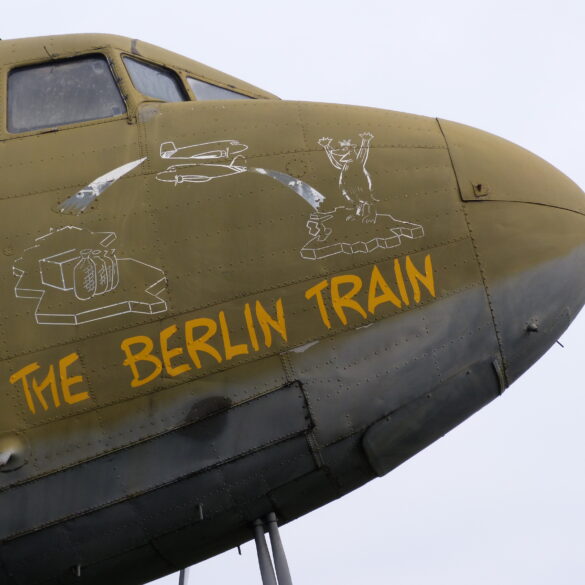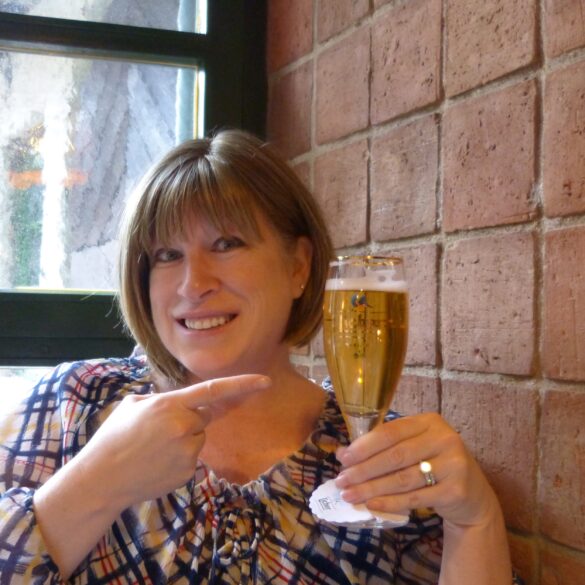Gouda, Netherlands

If you are a cheese lover, you absolutely must visit the city of Gouda in the Netherlands at least once in your life.
If you haven’t already guessed, it’s the home of Gouda cheese.
In Dutch, Gouda is pronounced something like “How-duh”, hence the exceedingly clever title of this post.
We drove to Gouda and made a stop on the way to see a UNESCO site, the Mill Network at Kinderdijk-Elshout.
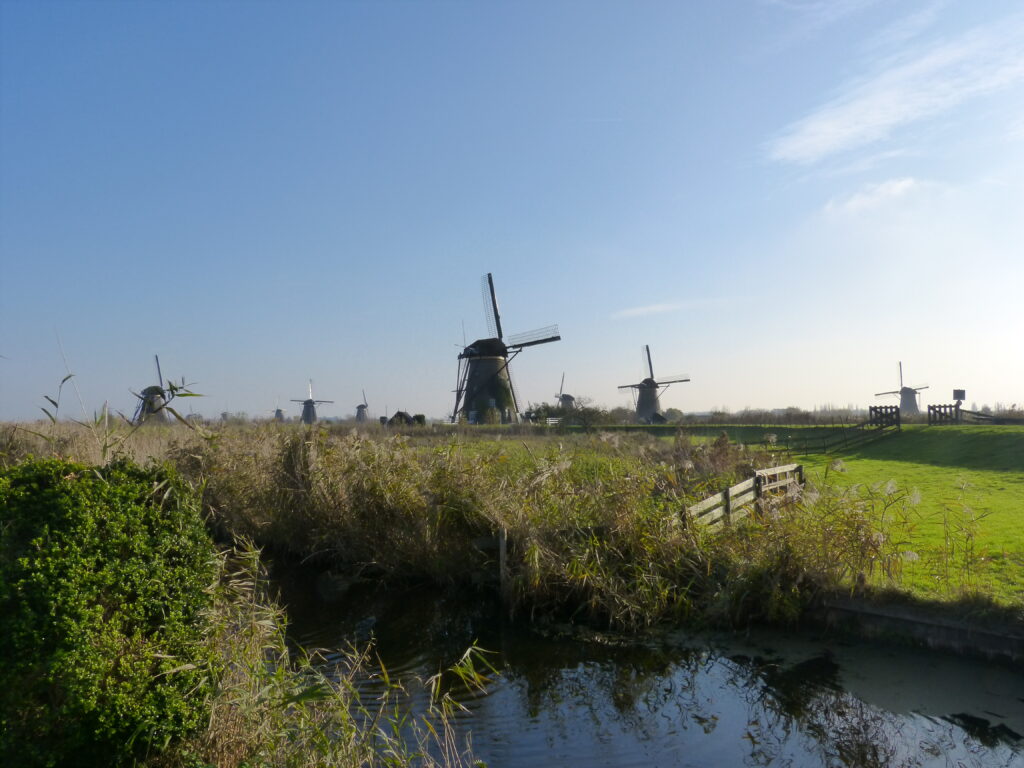
There are 19 windmills at the site that were built in the early 18th century. Their purpose was to drain water during flooding.
The windmills are still functional and people live and work in them to this day.
However, the flooding issues now are managed mainly by on-site diesel pumping stations.
According to folklore, after a flood in the year 1421 someone spotted a floating cradle in the distance. A cat was apparently jumping from side to side in the cradle, trying to keep it balanced and dry. It turned out there was a baby in the cradle, which is why the site is called Kinderdijk or “child dike”.
Personally I think it should be called Katdijk based on this story, but what do I know.
You can go inside one of the mills and look, there’s even a cat at the ready just outside the ticket window!
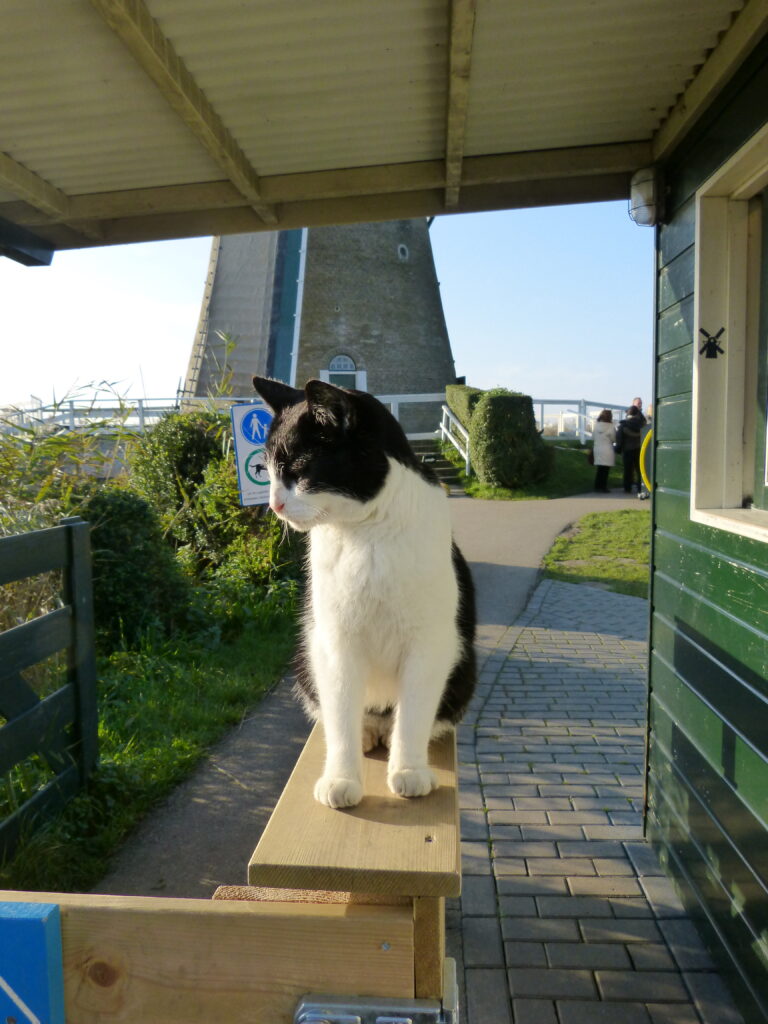
Going inside gives you an idea of what it would be like to live in a working windmill. There are photos throughout of a real family who lived in the mill as well as information about their history.
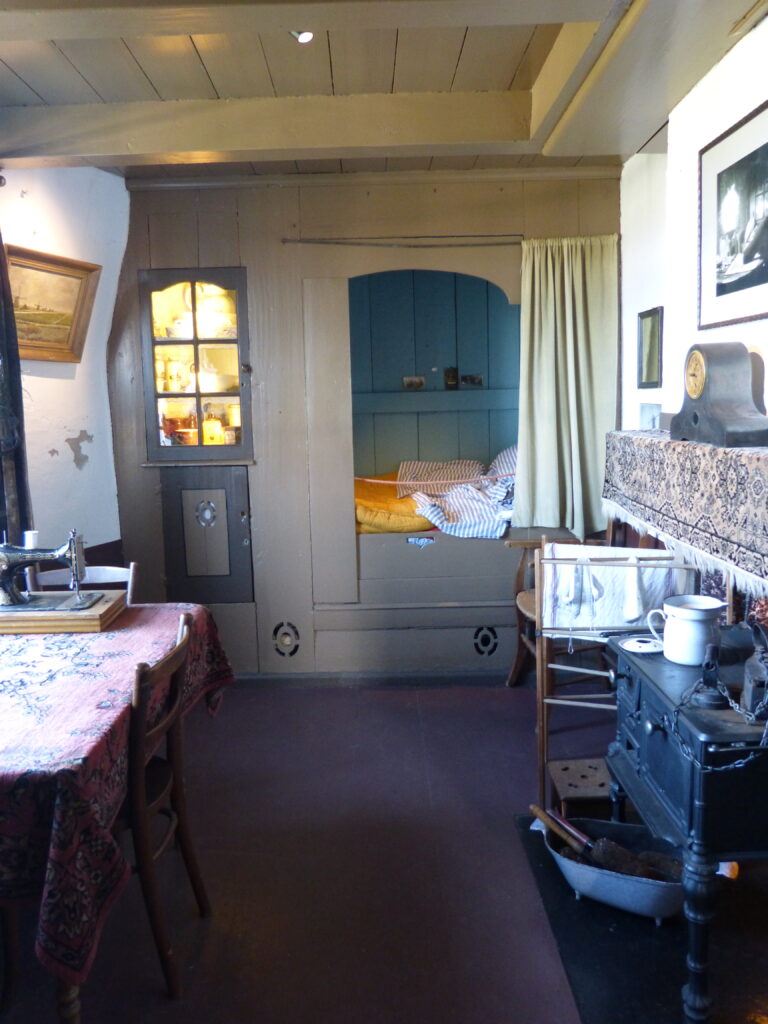
That would have been the main living area. The stove on the right kept both food and people warm; the other rooms in the mill were all unheated.
You can even see a tiny bed at the back of the room.
Life was not easy. For example, the wife of the miller who worked there at one time was hit by one of the windmill sails and was killed, leaving behind 13 children in addition to her husband.
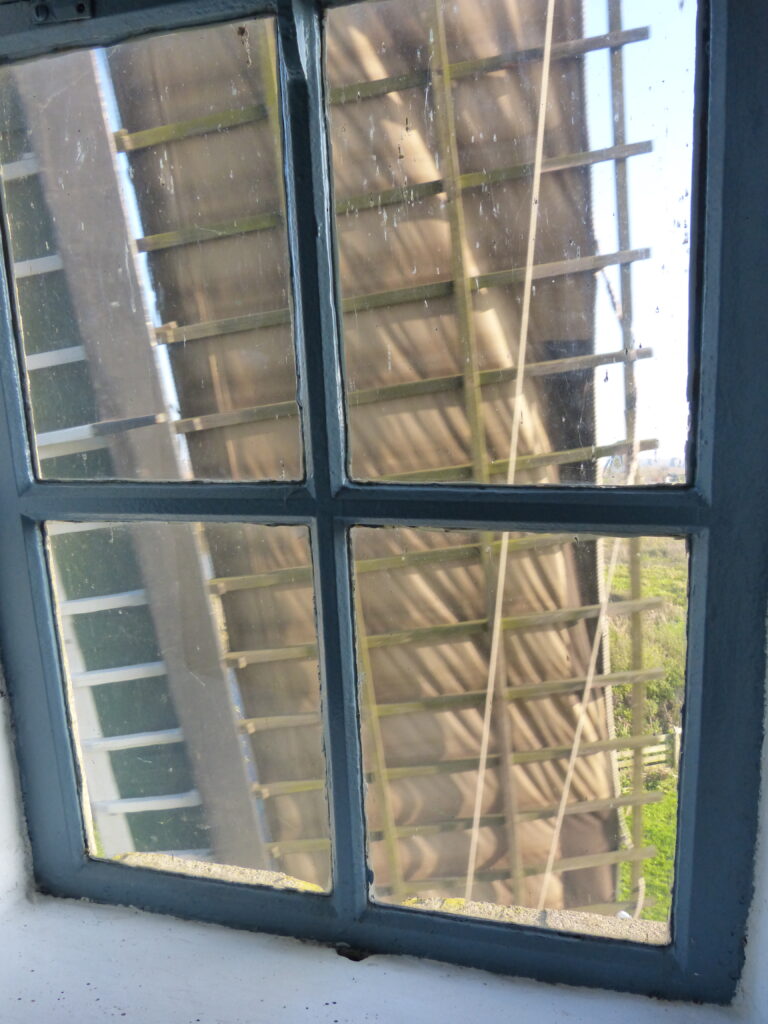
That photo was taken from inside the mill of one of the sails going past a window. The sails make a lot of noise but I guess you get used to it. They are also quite large and extremely heavy, and looking at them you can see how they could easily kill someone.
You can also take a 30-minute boat ride at the Kinderdijk site.
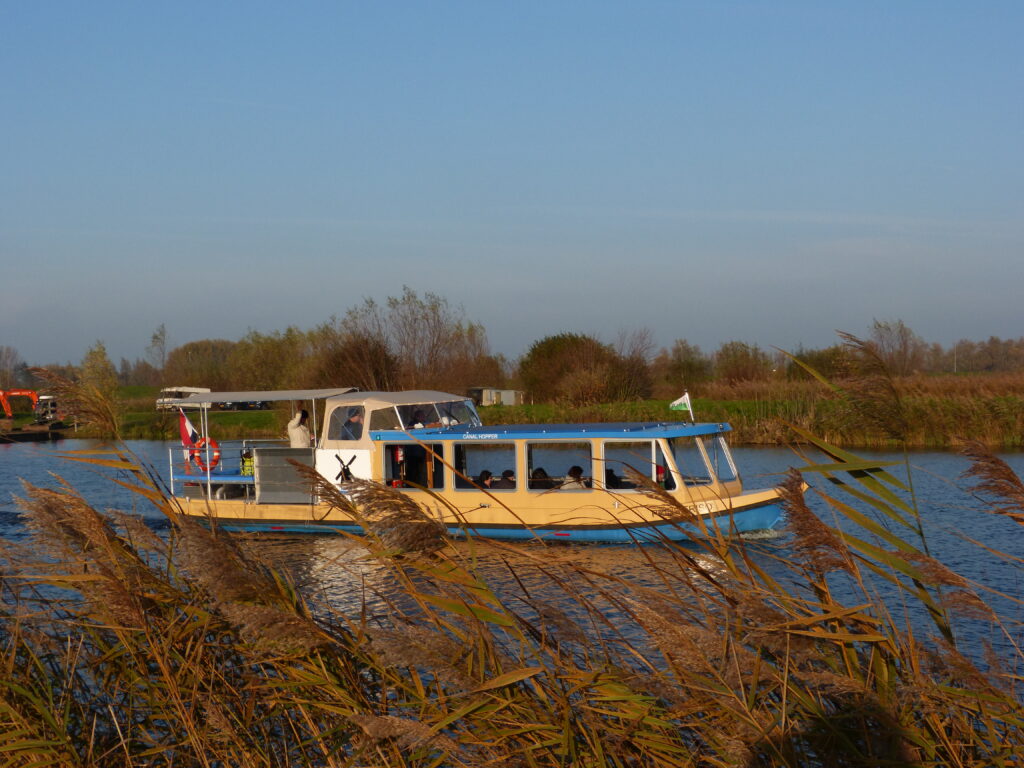
Information about ticket prices, opening hours and things to do at the site can be found here: https://kinderdijk.com/
After leaving the site we drove to Gouda, checked into our hotel, and made the short walk to the main square to have dinner.
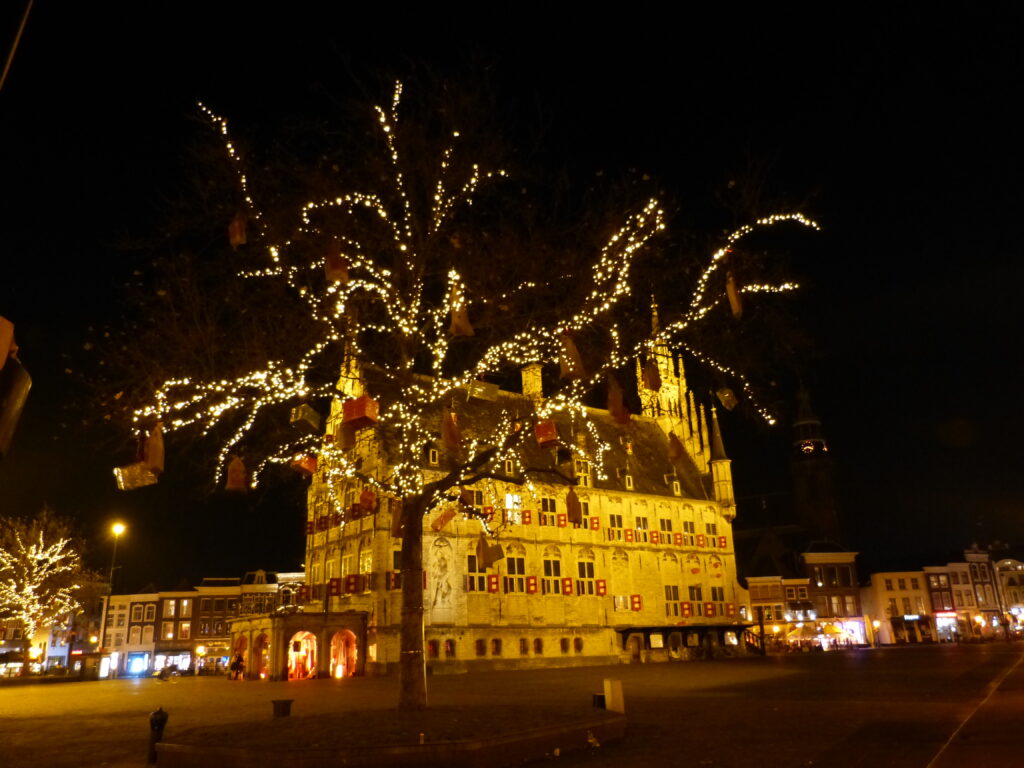
The city had just set up decorations for the Christmas season and everything was very festive-looking.
However, appearances can be deceiving. We had apparently just missed a riot in Gouda a few days prior to our arrival.
One beloved tradition in the Netherlands is the arrival, by boat, of Saint Nicholas and his sidekick Zwarte Piet or Black Pete. Saint Nick usually arrives with numerous Black Petes.
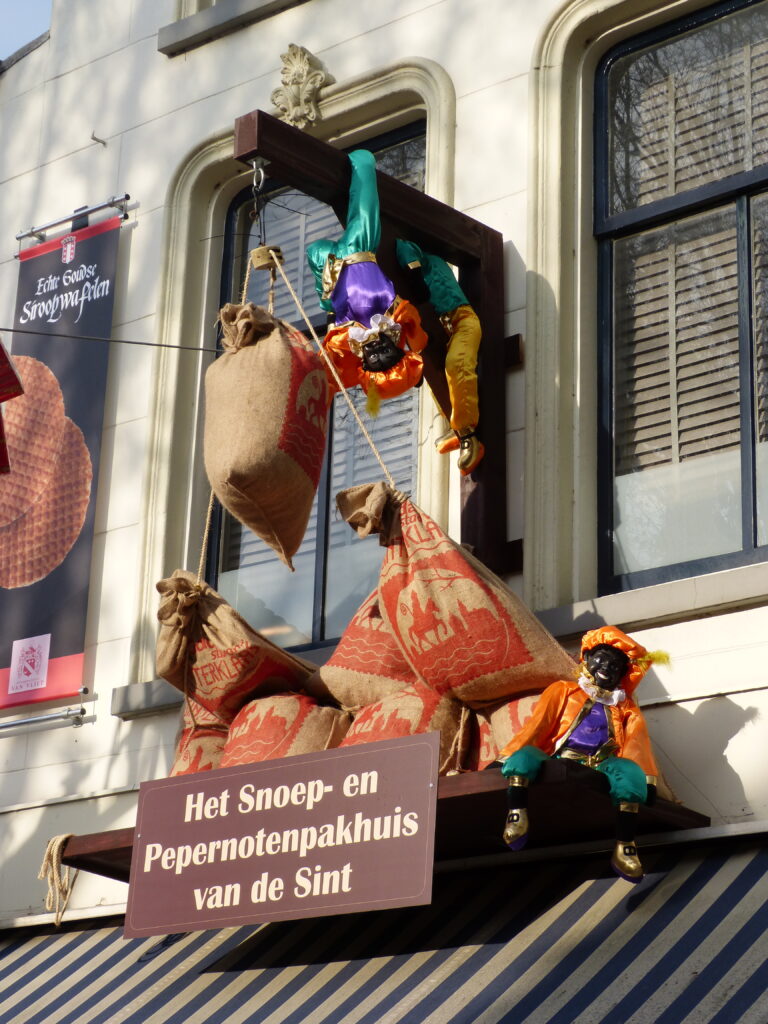
As everyone knows, Saint Nicholas lives in Madrid, Spain and the Black Petes are Moors from Spain. Bad children are put into burlap sacks and carried off to Spain.
This seemed rather odd to me until I thought well, I suppose it’s no worse than Santa living at the North Pole and children getting coal for Christmas.
Although I can imagine that some kids in the Netherlands probably misbehave on purpose just so they can go live in Spain.
Anyway, the Black Petes are normally depicted by white people wearing black, curly wigs and decked out in blackface with big, red, painted-on lips.
In recent years people have begun protesting what they see as a racist tradition and this past November there really was a riot in Gouda on the day Black Pete arrived.
90 people were arrested.
From what I’ve read, most of the protesters are not the native Dutch, most of whom want to hold onto the traditions they grew up with.
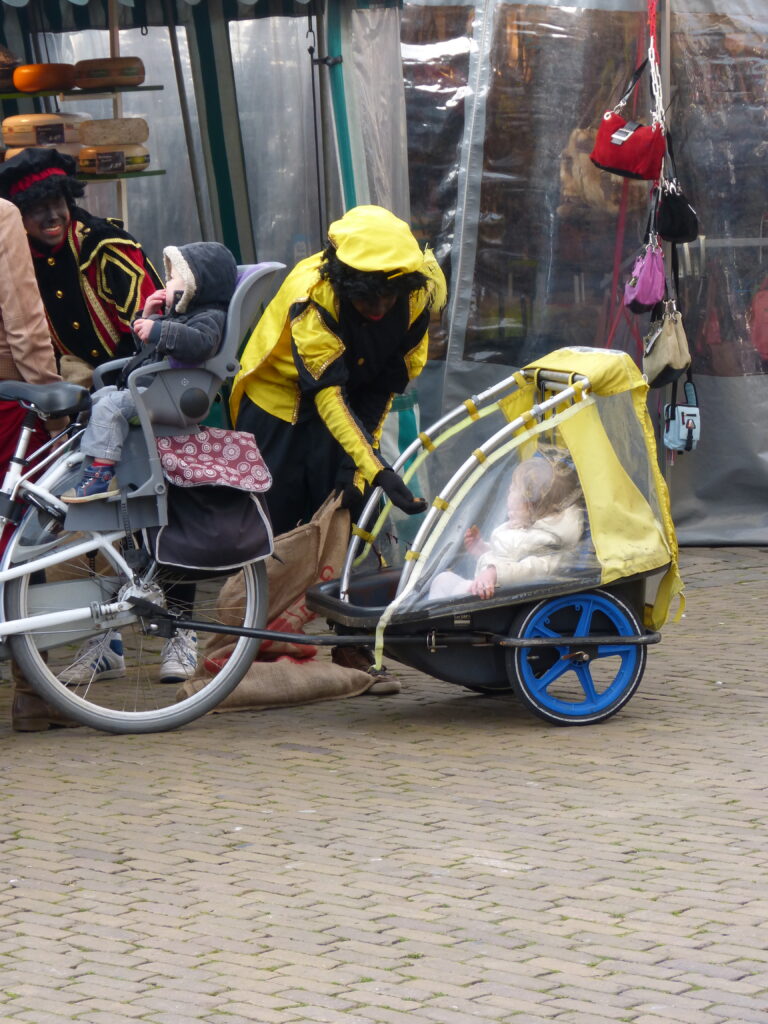
We even saw Black Petes like these two running around the market at the main square. They were handing out treats to children, and the kids all loved them.
Okay, enough about the Black Petes.
After a good night’s sleep, we headed back to the main square where we picked up a walking tour guide as well as couple of other maps and brochures from the Tourist Information (TI) office.
The guide takes you on a 2.5-mile walk and is very informative. One of the special things about it is that people who are city guides each picked a favorite sight and wrote about it, so some of the stories are very personal.
For example, one of the guides writes about a building where windmill sails used to be made. He says his father worked there for thirty years and he used to visit his father at work as a child.
On our way to the square we saw this.
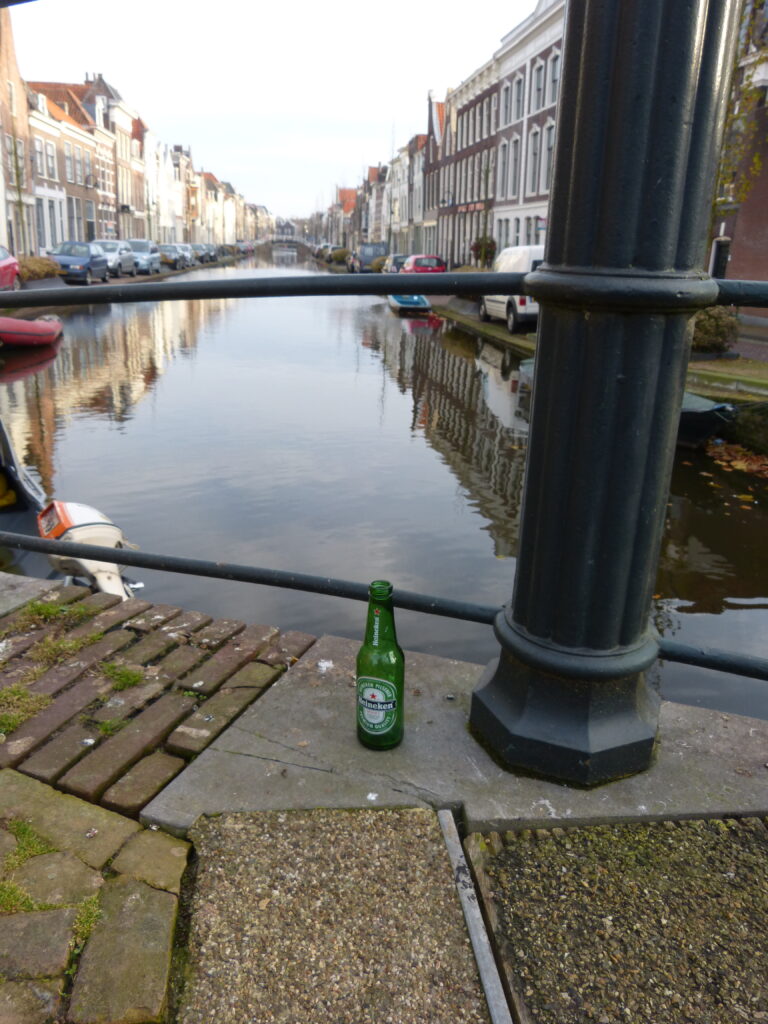
What could be more Dutch than an empty Heineken bottle in front of a canal?
The tour starts in front of the Waag or weigh-house, which is also where the TI is now located.
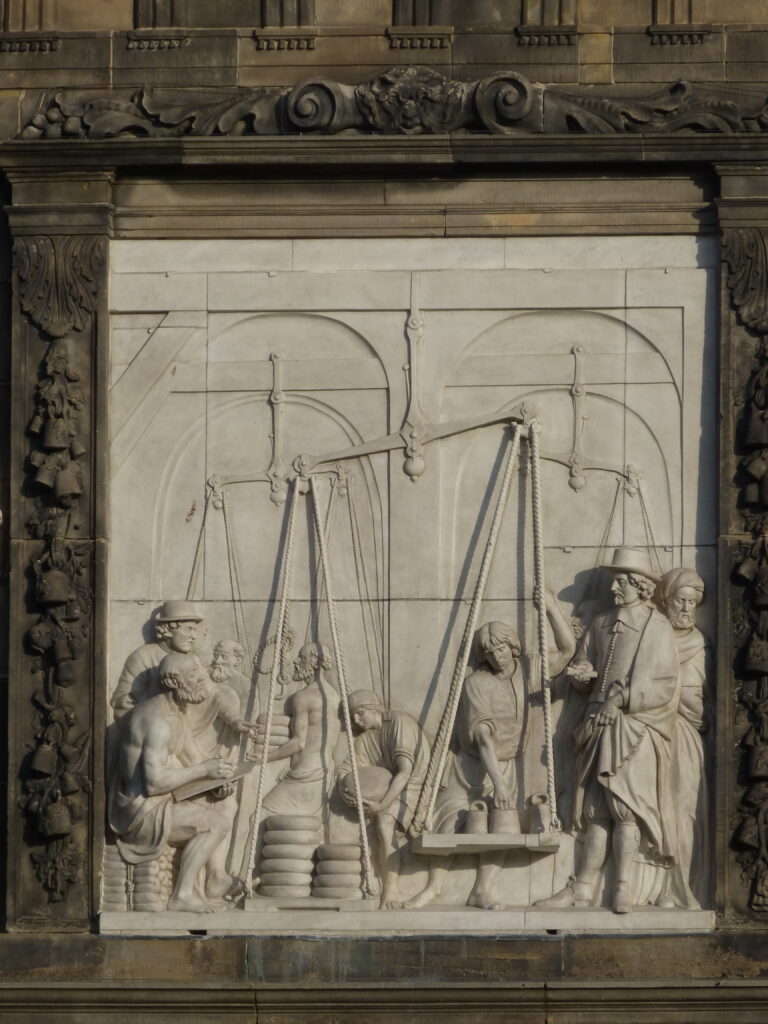
On that relief on the front of the building, you can see the round wheels of cheese being weighed.
There was a market going on at the square and the cheese vendors had free samples.
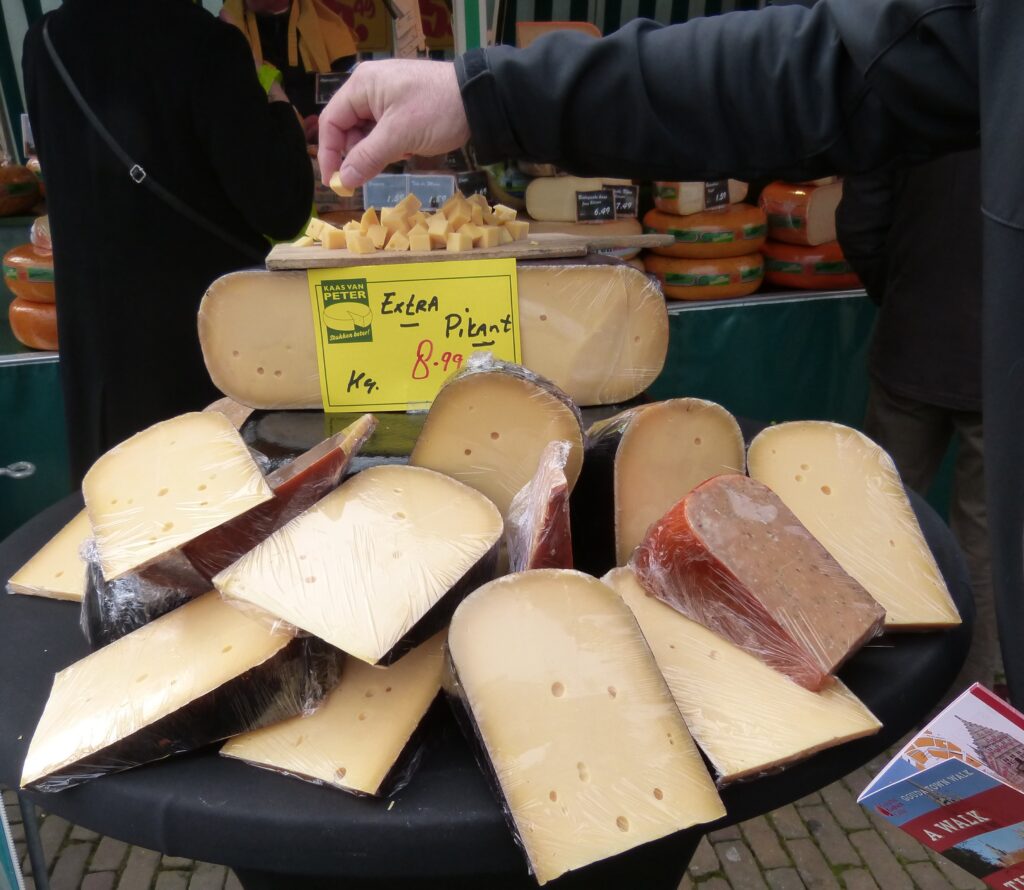
Mmmmm, cheese.
One of our stops was De Sint Janskerk or the St. John’s Church.
It’s famous not only for being the longest church in the Netherlands, but also for its stained glass windows.
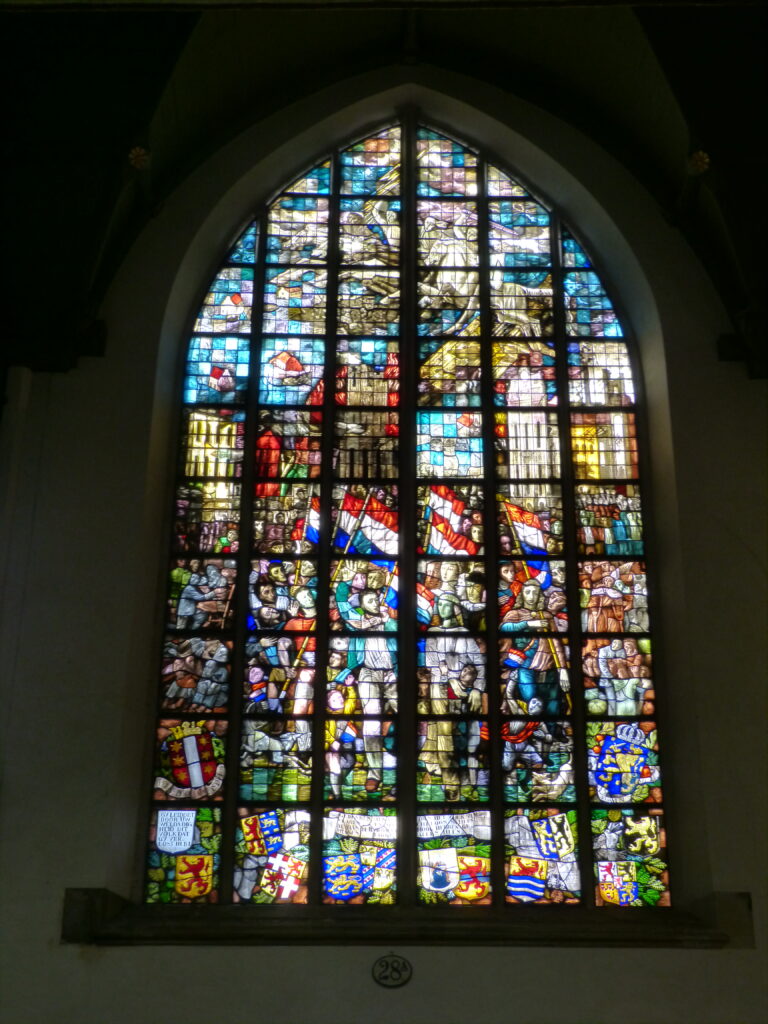
There is a set of windows called The Gouda Windows that date from the 16th century. They depict the life of John the Baptist, after whom the churh is named. They were removed from the church before World War II sor safekeeping and reinstalled later.
The window shown above is not one of the Gouda Windows but is still impressive. Notice the Netherlands flags in the middle of the window.
The church is currently undergoing renovation and this unfortunately made it a little difficult to see the Gouda Windows or get any good photos of them.
Our walk had us criss-crossing the canals, and here you can see more evidence of the pre-Christmas celebrations.
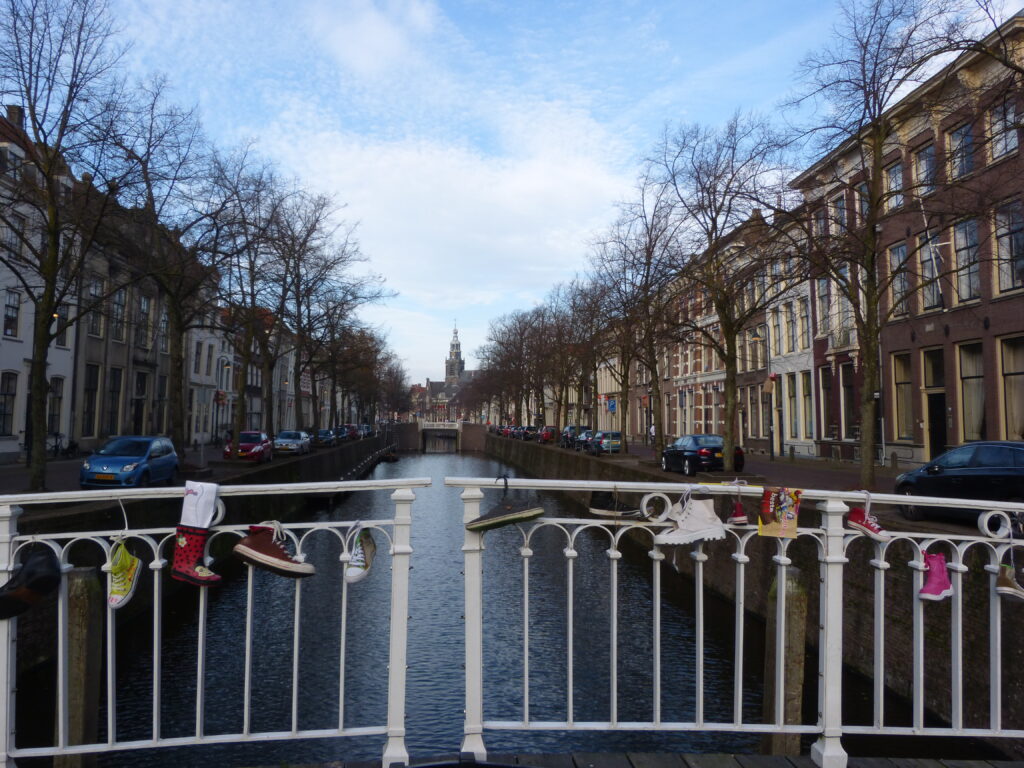
December 6th is St. Nicholas’ Day, and on the 5th Dutch children put their shoes out with treats in them for St. Nicholas’ horse. In return they expect treats for themselves.
This was in November, though, but apparently they had also put their shoes out for the arrival of Saint Nicholas and the Black Petes by boat. Some of the shoes even had welcome messages written on them for the Saint Nicholas and the Black Petes.
And of course we walked by a windmill.
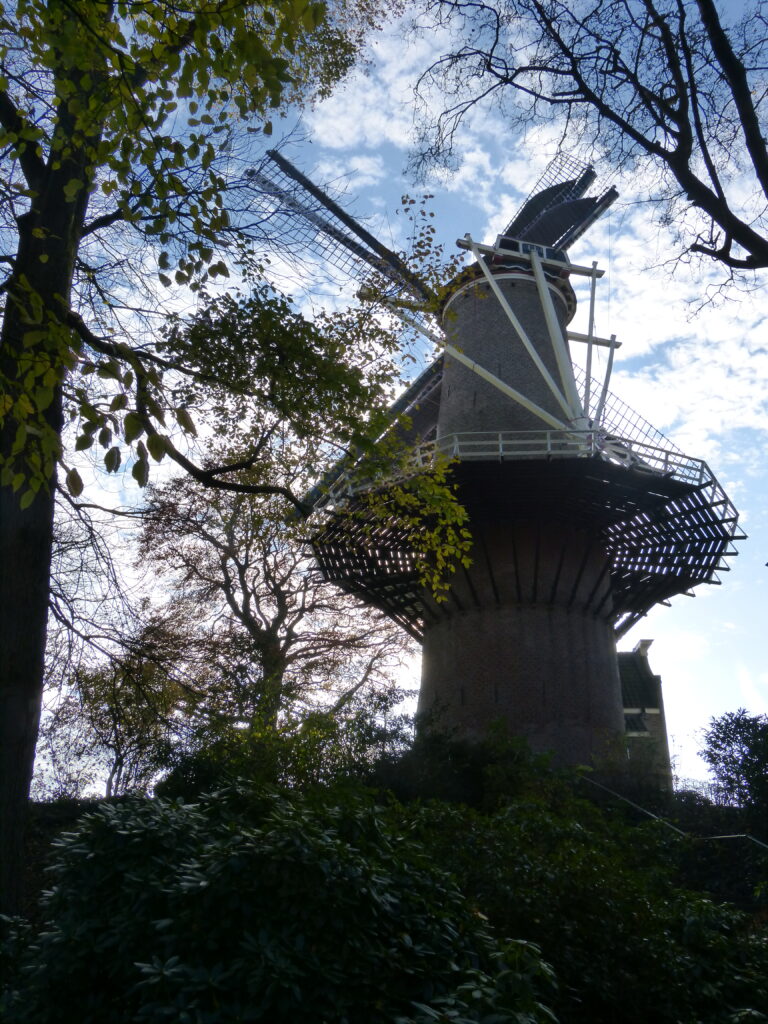
It was built on the site of a former castle. You can still see some of the remains of the castle even though it was destroyed way back in 1577.
As beautiful as the canals, churches and windmills are, one of the things I love looking at in the Netherlands are the houses.
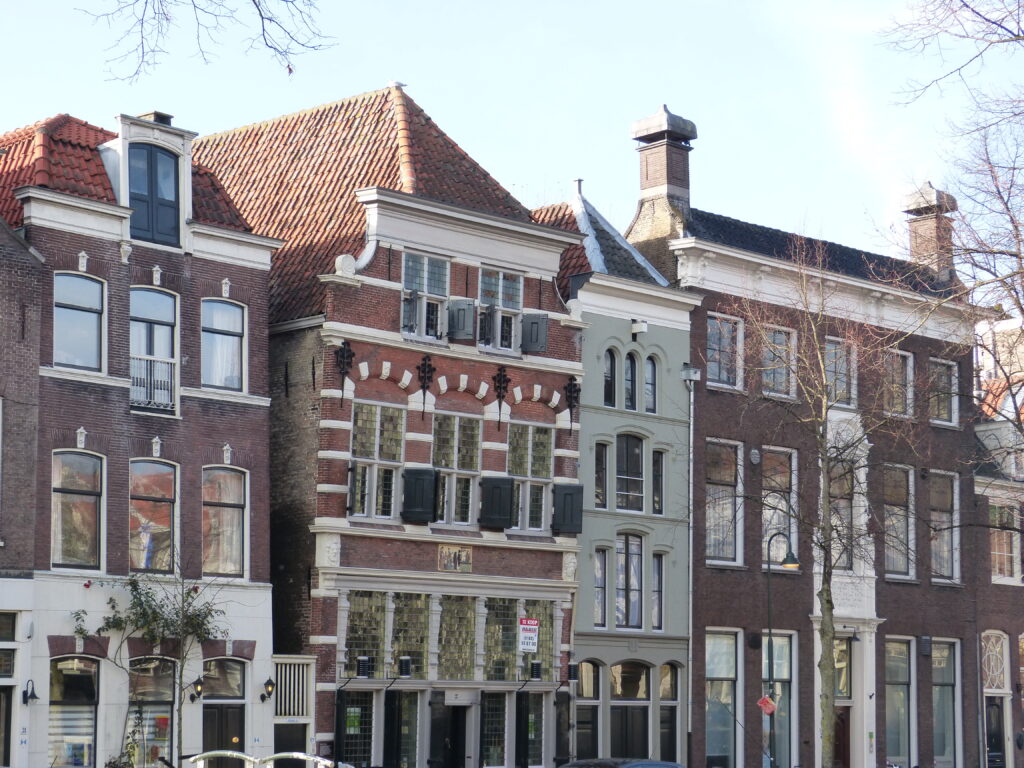
Look at that second house from the left and notice how far out it’s leaning compared to the other houses.
I always wonder if people have to secure their furniture in places like that.
Check out the row of cars on the right-hand side of this photo and notice the little building just in front of them that borders the canal.
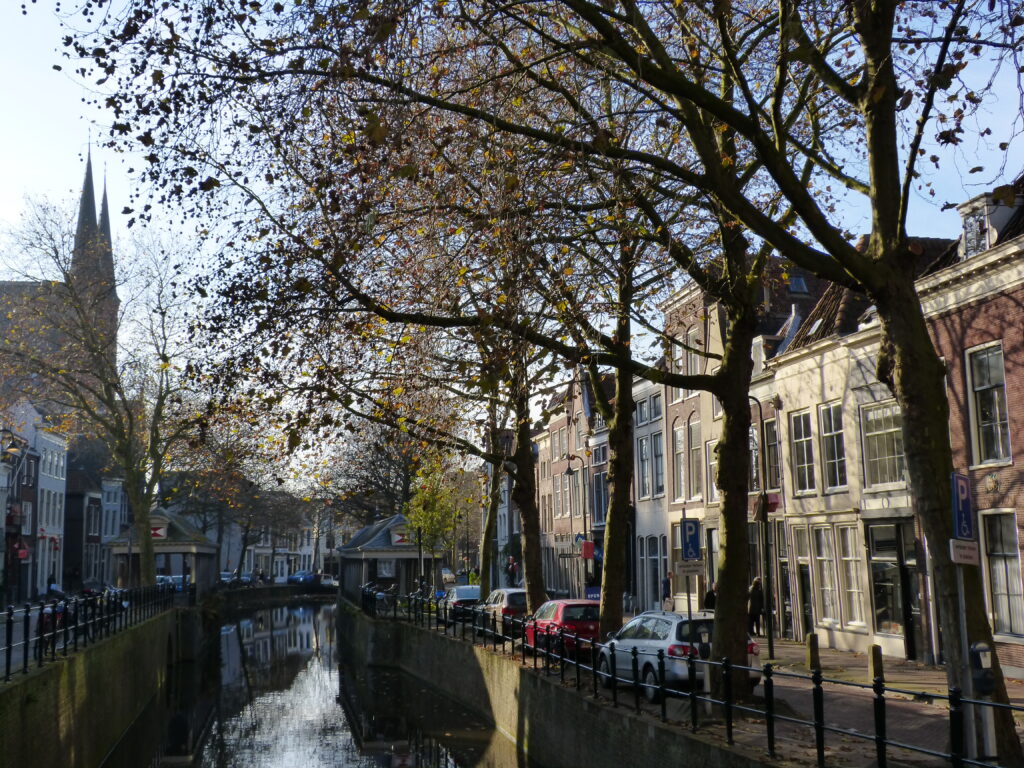
There is an identical building across the canal from it, and these buildings are where the fish market used to be held.
One side was for the local fisherman and the other was for out-of-towners.
Speaking of cars parked along the canal, I had to take a photo of this.
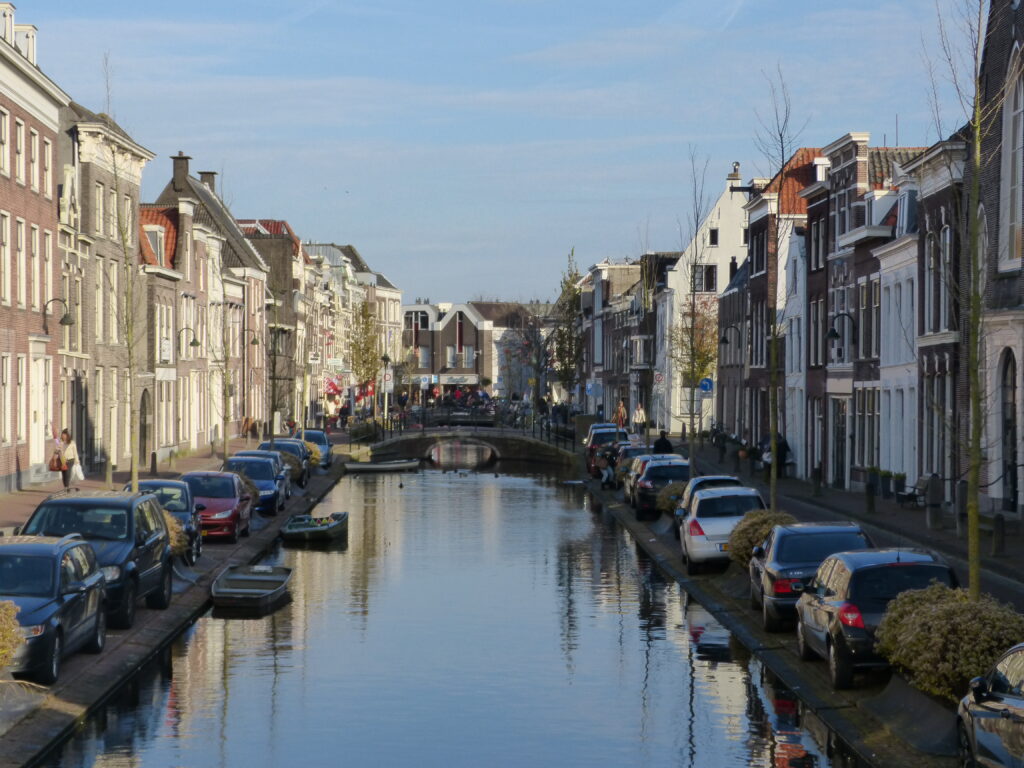
Every time I see something like that I think geez, one false move and your car is in the canal.
I’ve written about these Stolpersteine or Stumble Stones before.
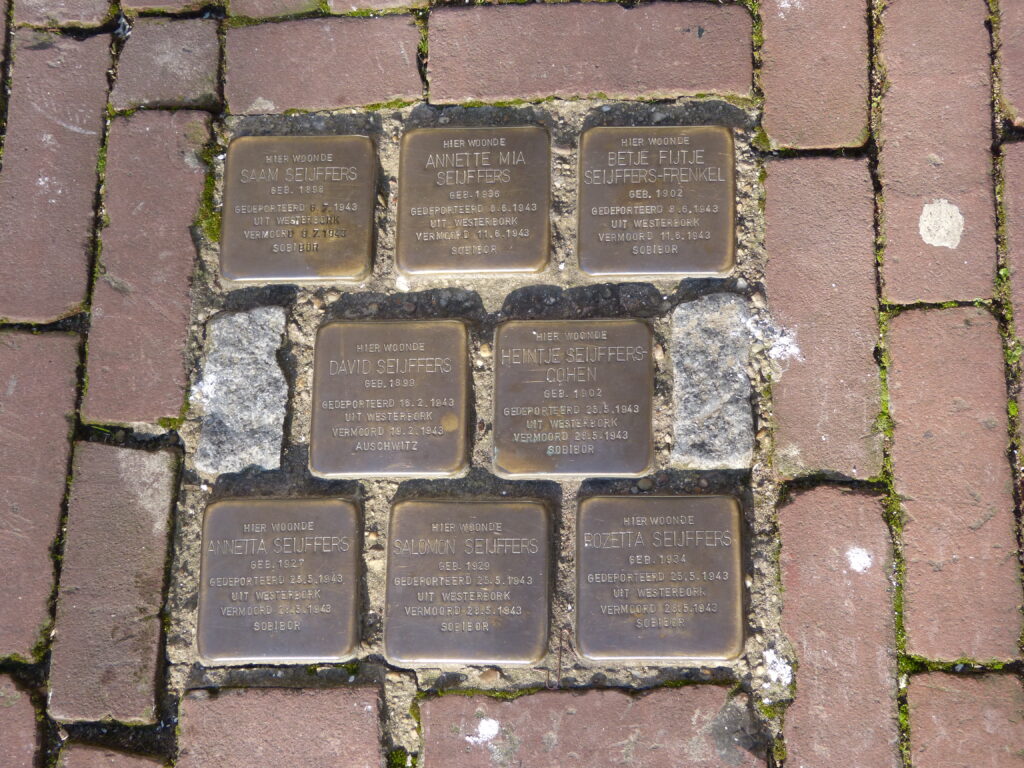
This set of stones shows that 8 members of the Seijffers family were taken from their homes by the Nazis in 1943. The abbreviation “geb.” on the stones precedes the year each of them were born.
You can see that two were born in 1936 and 1934, making them only 7 and 9 years old when they were deported and died.
The bottom of the stone shows the place where they were all murdered – 7 of them at the Sobibór extermination camp and one at Auschwitz. So incredibly sad.
Moving on to a somewhat brighter theme, I liked the colors in this courtyard.
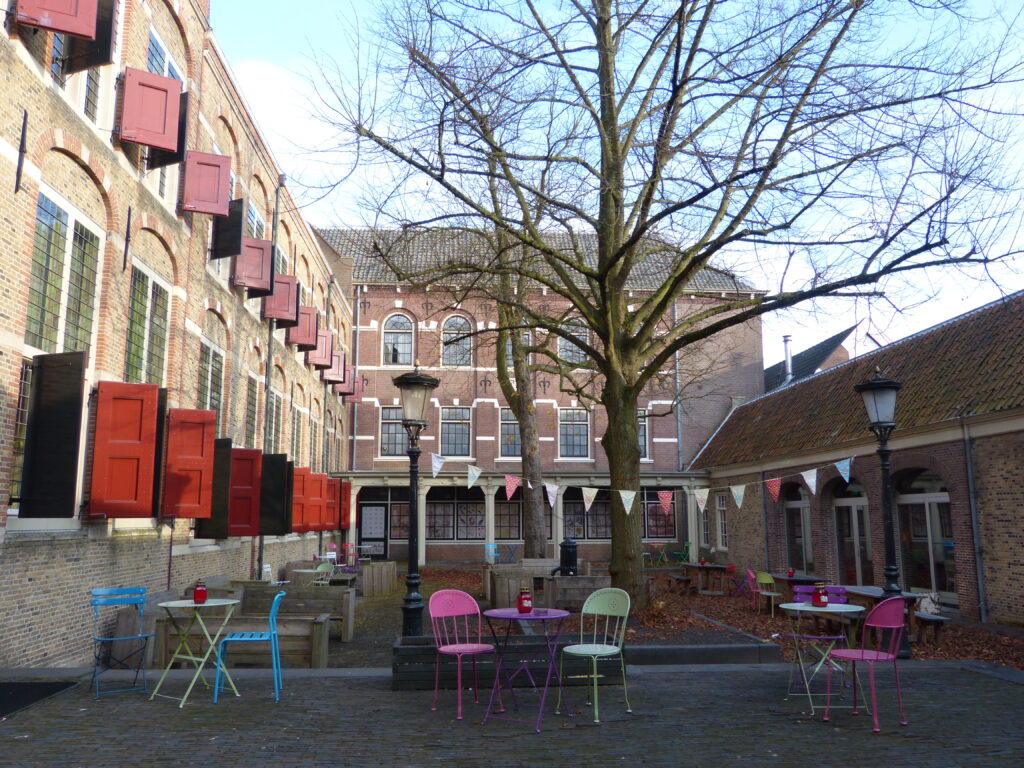
Back to a bit of a sad not, though, It’s actually the courtyard of a former orphanage.
The guide who wrote about this place said her grandmother was an orphan who lived there and that she was a very sweet-natured person who must have had a good experience, unlike so many others.
This brick structure used to be the gate to a Jewish cemetery that was in a different part of town.
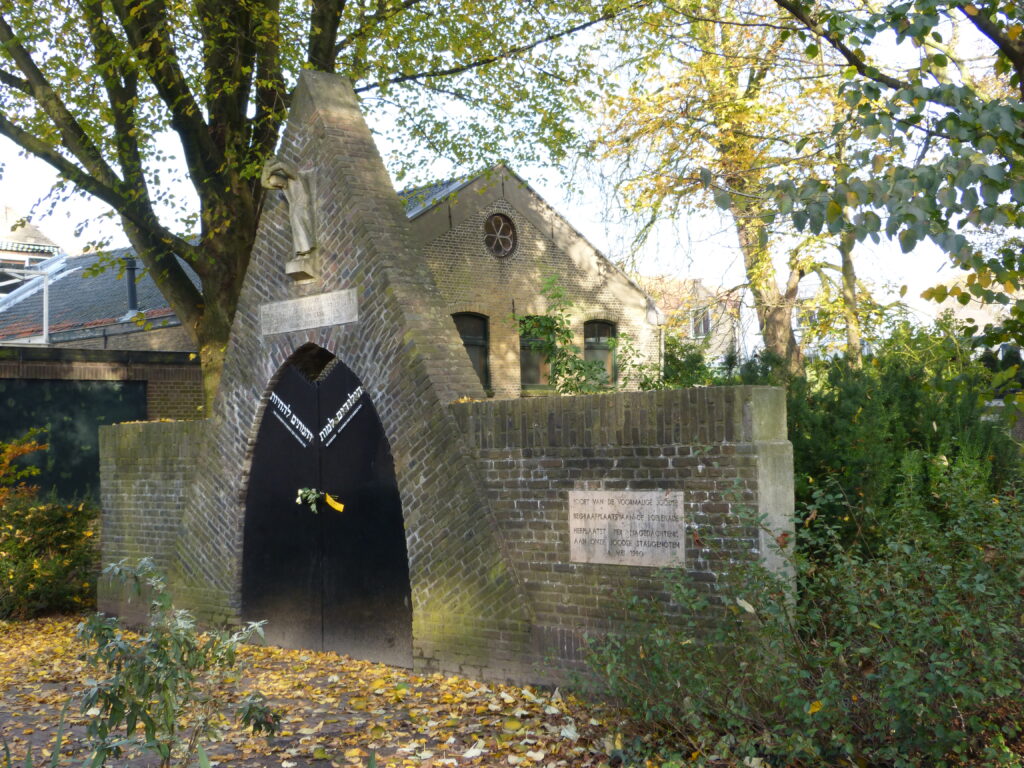
When the cemetery was closed, the gate was moved and it now serves as a memorial.
With the walking tour just about over, we stopped into the t Kaaswinkelje (no, that lone “t” is not a typo!) to taste and buy some delicious cheese.
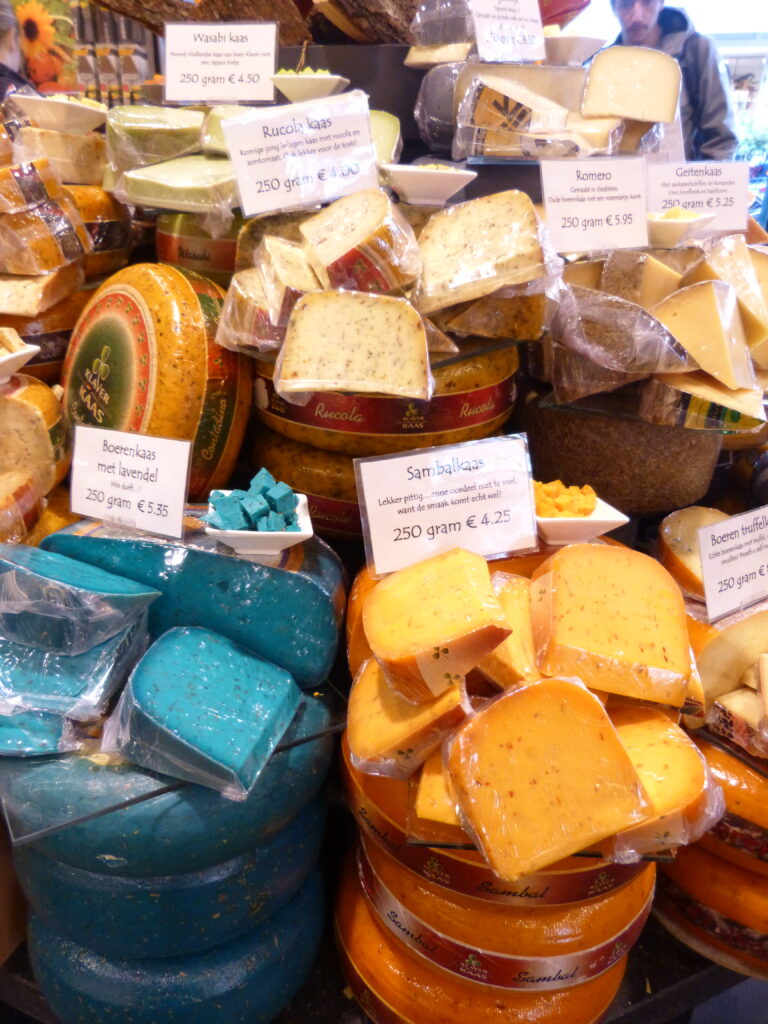
This cheese was SO freakin’ good. We seriously could not stop tasting the samples they were constantly putting out of all the different cheeses.
We ended up spending about 50 Euro on cheese – mostly Gouda – to take home with us and in hindsight we wished we’d bought double that.
Sean keeps saying we have to go back to buy more cheese. It was that good.
That shop sells only traditional farmhouse cheese and you probably pay a little more for it, but believe me it’s worth it.
After leaving the cheese shop we stopped at a restaurant called Der Zalm for a late lunch/early dinner.
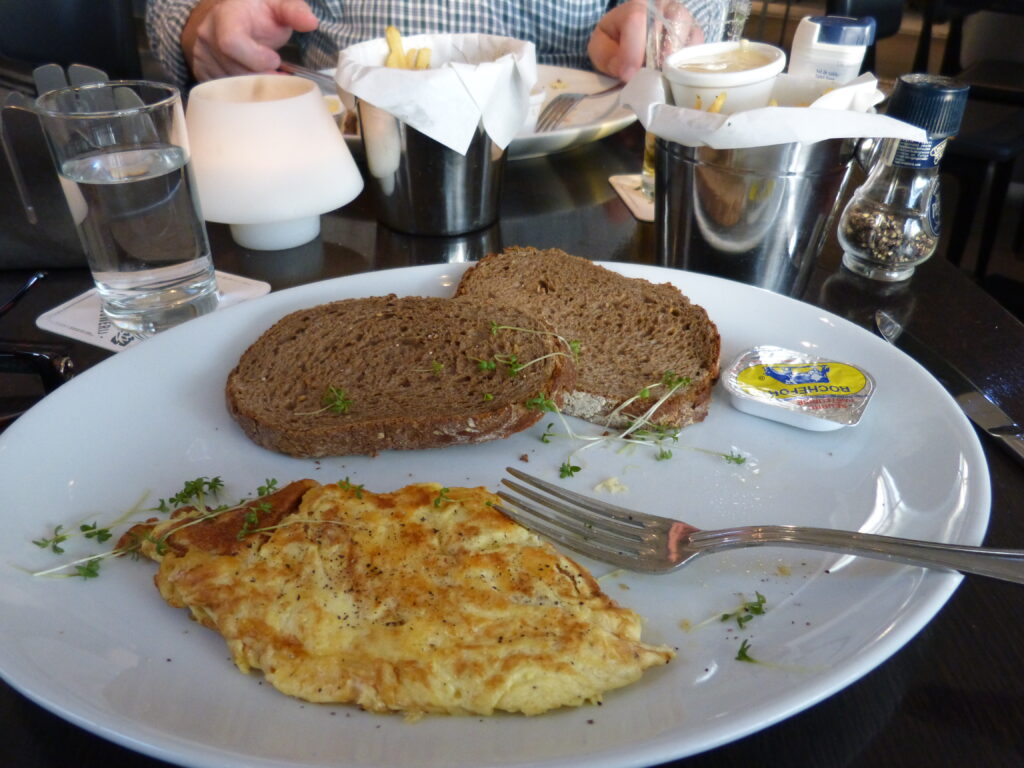
As if I hadn’t just tasted enough of it, I ordered a Gouda cheese omelet and it was fabulous.
On the way back to the hotel, we stopped at a place called Banketbakkerij Van den Berg for dessert.
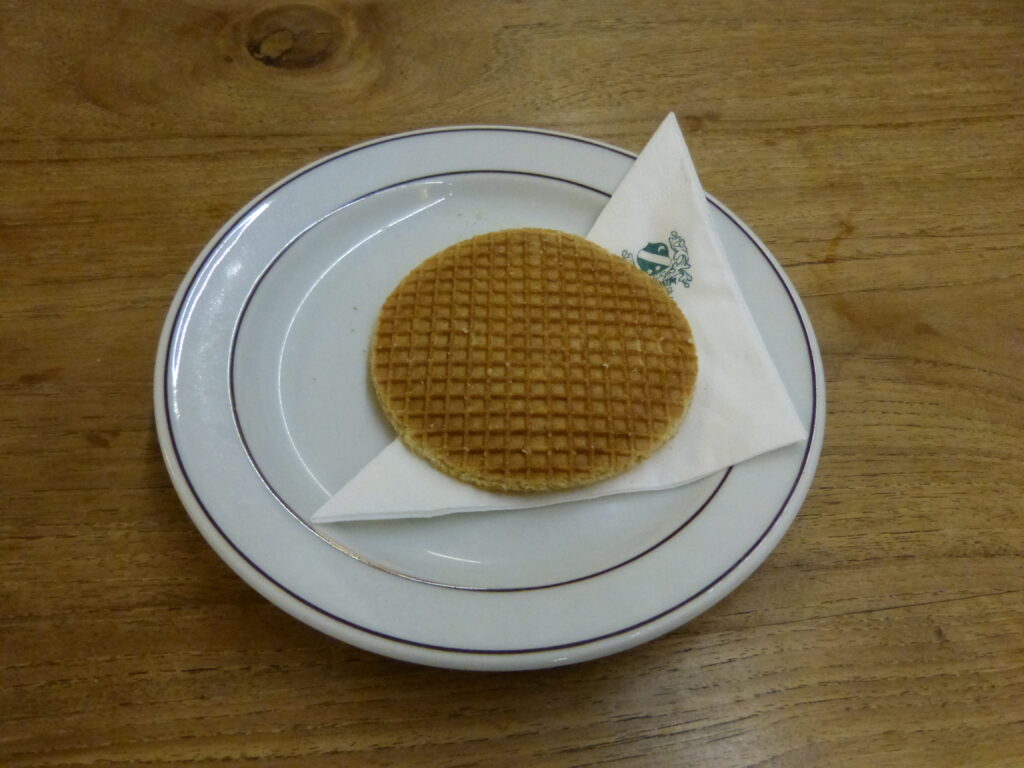
That’s a stroupwafel or syrup waffle, which was invented in Gouda by Gerard Kamphuisenin the year 1810.
A stroupwafel is two very thin waffles – more like a cookie – with caramel syrup in the middle. It’s also very light and yummy and was the perfect thing to have after our meal.
That night we just sat in the lobby of the hotel enjoying the TIPPLE OF THE DAY from the hotel bar.
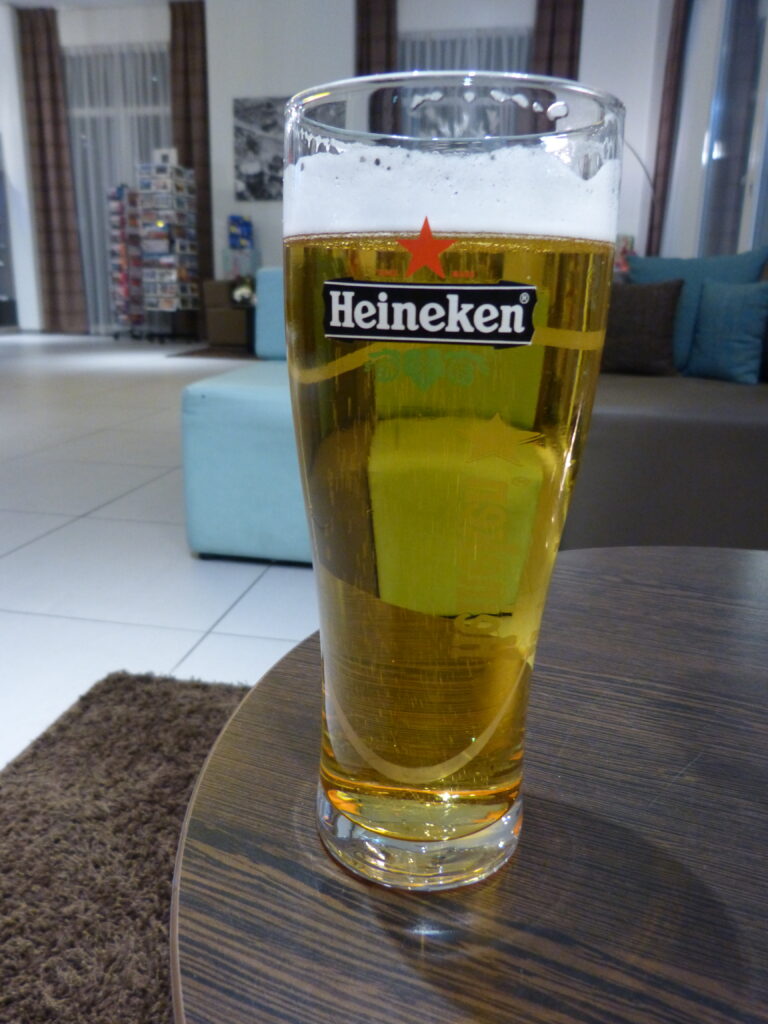
It was, of course, Heineken. I have to have it when I’m in the Netherlands.
The next morning, which was a Sunday, we took a quick walk back to the square before checking out of the hotel.

I was able to get a couple of photos of the square and the Town Hall you see there without the market stalls and the crowds that had been there the day before.
The Town Hall was built around 1450 and is magnificent no matter which side it’s viewed from.
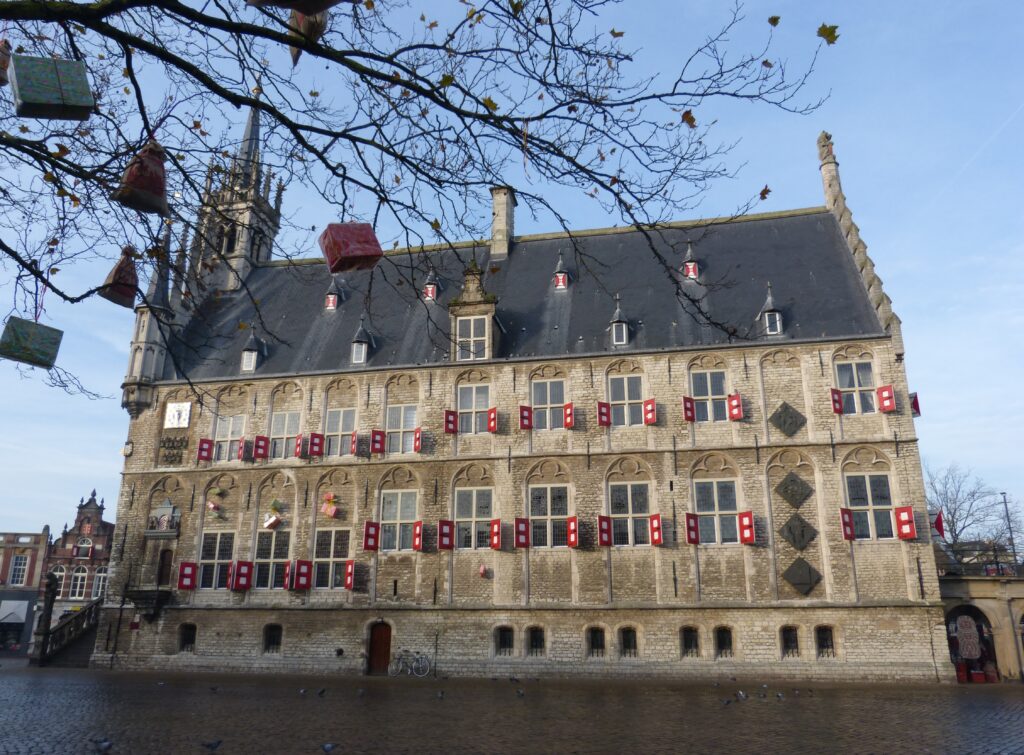
I was also able to get a photo of the weigh-house that you read about way back towards the beginning of this post.
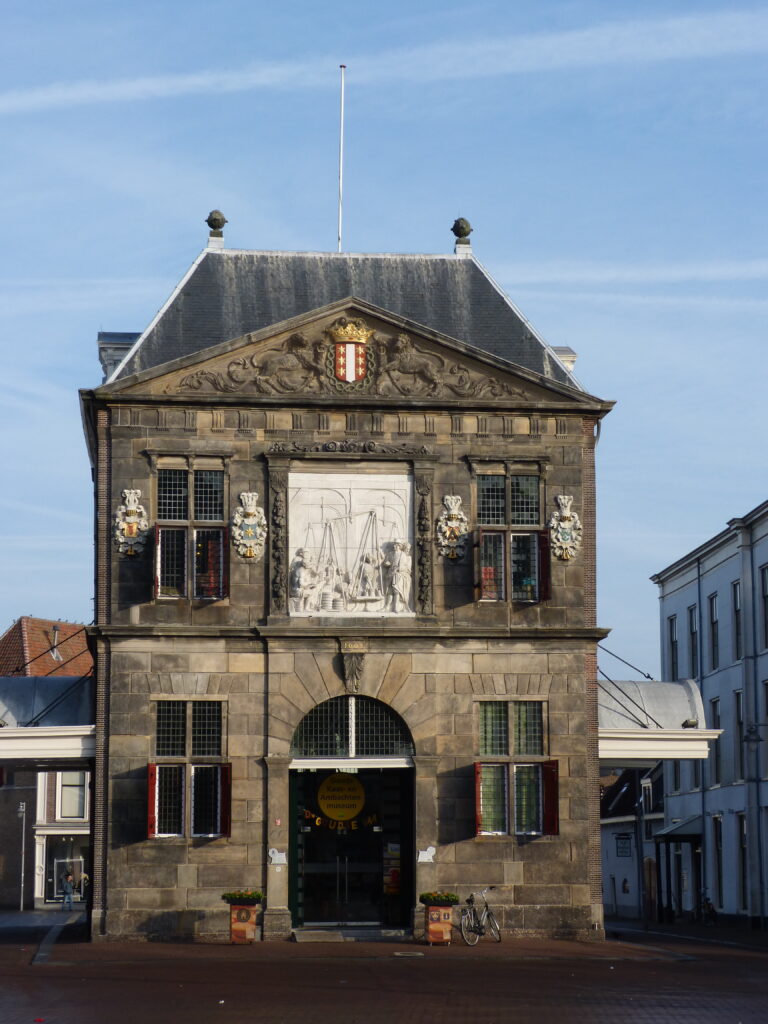
Gouda was a great place to visit on a quick weekend trip and I suspect we will be going back there at some point to stock up on cheese again!

